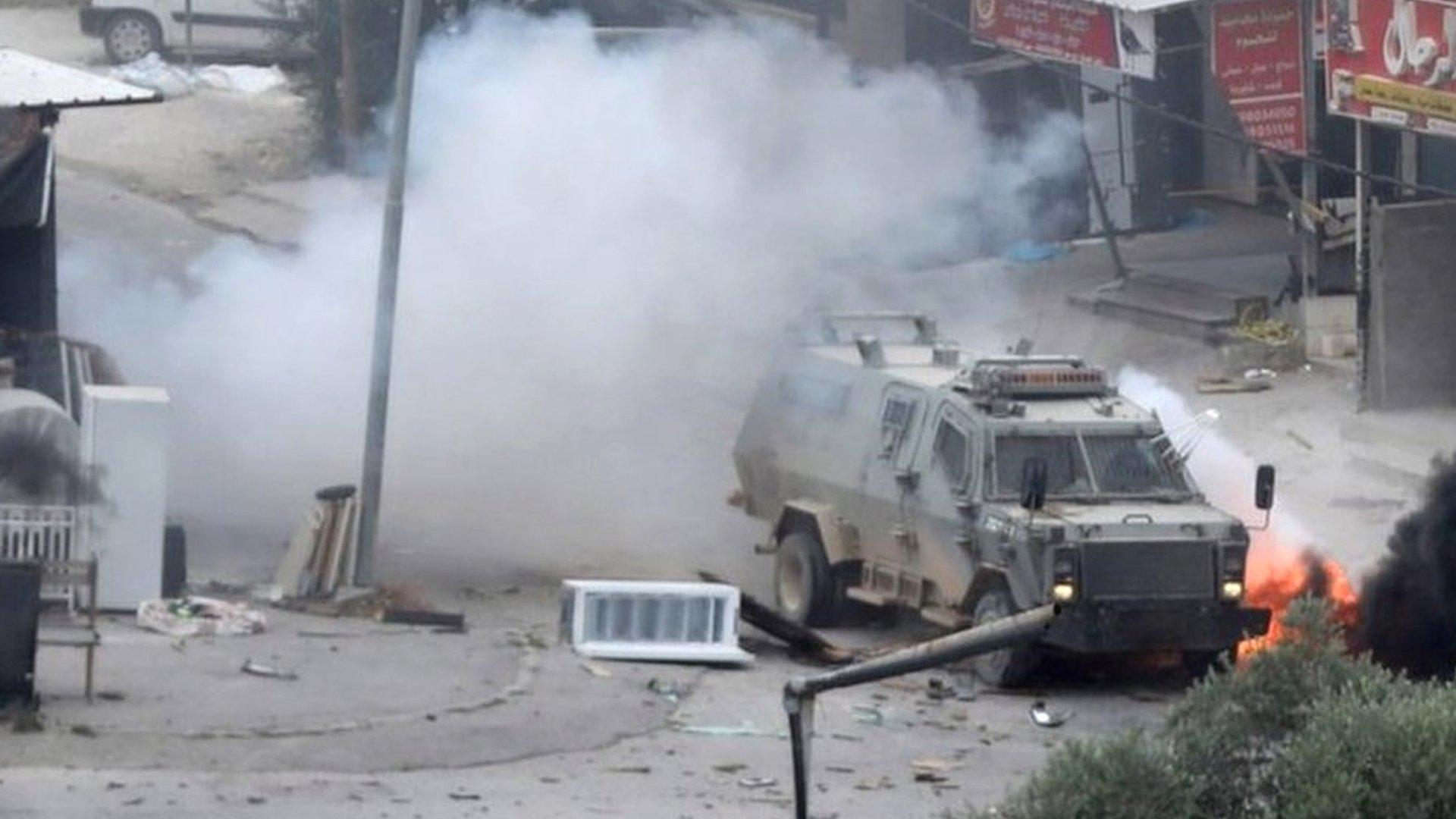Gaza-Israel exchange of fire as Israeli forces complete Jenin withdrawal
- Published
Watch: BBC editor ducks as gunfire interrupts report
Israel has carried out air strikes on Gaza in response to rocket fire from Palestinian militants, as Israeli forces completed their withdrawal from Jenin in the occupied West Bank.
It follows a major two-day operation inside the city's refugee camp which killed 12 Palestinians.
An Israeli soldier was also killed on Tuesday night during the withdrawal, which triggered more gun battles.
Early on Wednesday, the military said it intercepted five rockets from Gaza.
Shrapnel from one of the interceptor missiles damaged a house in the southern Israeli town of Sderot.
No militant group immediately claimed that it was behind the launches, but the Israeli military said fighter jets struck an underground weapons manufacturing facility used by Hamas, which governs Gaza, as well as a raw materials manufacturing facility for rockets.
The military said it held "the Hamas terrorist organisation responsible for all terror activities emanating from the Gaza Strip and will face the consequences of security violations against Israel".
On Tuesday afternoon, Hamas described a car-ramming and stabbing attack in the Israeli city of Tel Aviv as a "natural response" to the Jenin operation.
Israeli authorities said seven people were injured on a busy shopping street and that the attacker was a Palestinian man from the West Bank. He was shot dead by a civilian.
Israel's Prime Minister, Benjamin Netanyahu, said: "Whoever thinks that such an attack will deter us from continuing our fight against terrorism is mistaken."
He also warned that the Jenin operation would not be a "one-time action".
"We will continue as long as necessary to uproot terrorism. We will not allow Jenin to go back to being a city of refuge for terrorism," he added.
Palestinian leaders accused Israel of mounting an "invasion" in Jenin.
An Israeli military spokesman told the BBC on Wednesday morning that "the operation is officially over, and the soldiers have left the Jenin area".
The military launched its operation in Jenin refugee camp early on Monday with a drone strike that it said targeted a joint command centre of the Jenin Brigades - a unit made up of different militant groups, including Hamas.
Drones carried out further air strikes as hundreds of troops entered the camp and engaged in intense gun battles with armed Palestinians inside the camp.
The military said the "counter-terrorism operation" was focused on seizing weapons and "breaking the safe haven mindset of the camp".
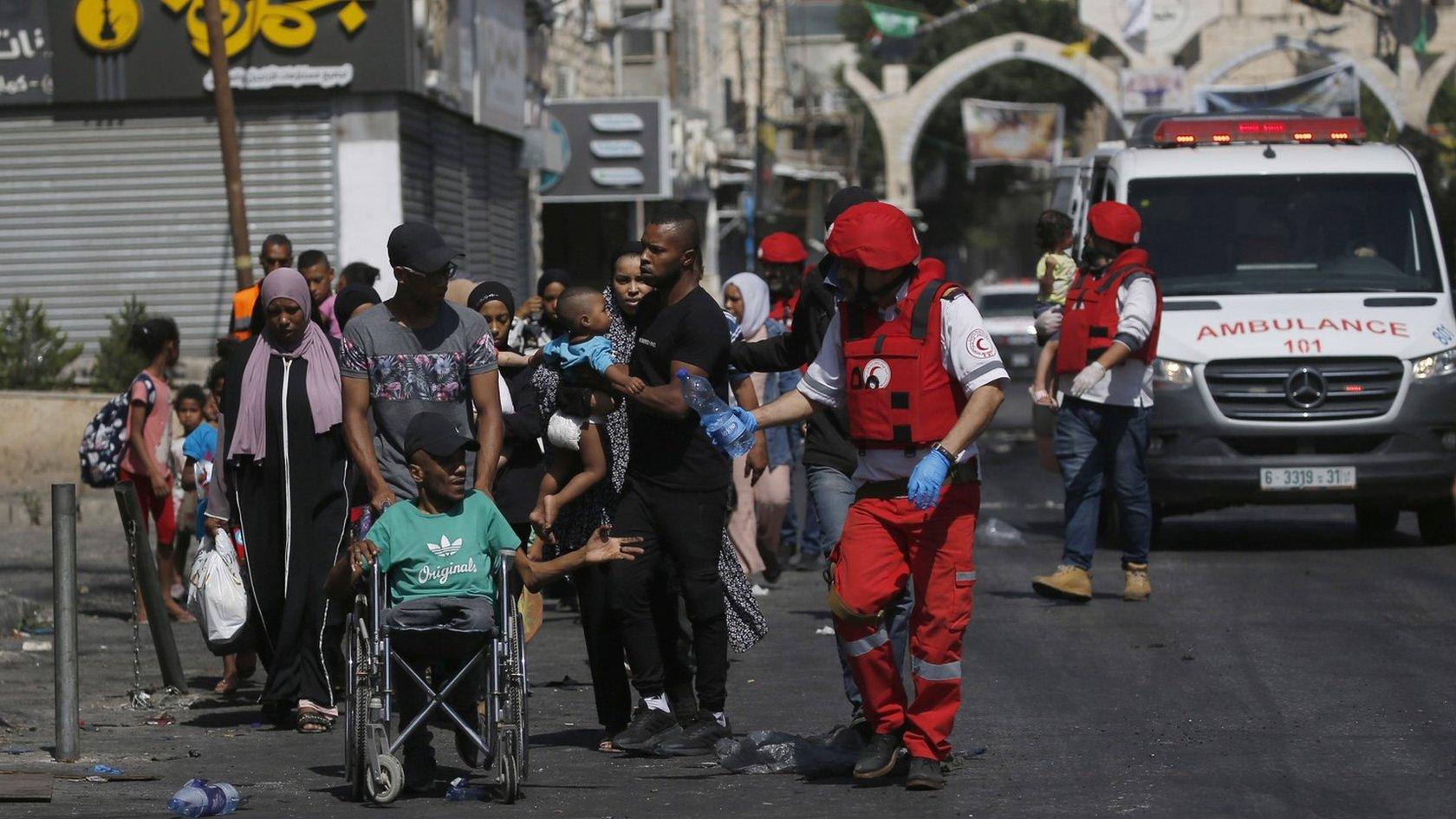
Several thousand Palestinian families fled Jenin refugee camp during the operation
At a news conference in Geneva on Tuesday, a spokeswoman for the UN's humanitarian office said it was "alarmed at the scale of air and ground operations that are taking place in Jenin and continuing today in the West Bank, and especially [the] air strikes hitting a densely populated refugee camp".
She said the Palestinian health ministry had confirmed that three children - two 17-year-old boys and a 16-year-old boy - were among those killed, and warned that damage to infrastructure meant most of the camp now had no drinking water or electricity.
The World Health Organization said Palestinian ambulance crews had been prevented from entering parts of the camp, including to reach people who were critically injured. The health ministry has said more than 140 Palestinians have been injured, 30 of them critically.
A Palestinian Red Crescent official said about 3,000 Palestinians, including many sick and elderly, were allowed overnight to flee the drone strikes and gun battles between Israeli troops and armed Palestinians.
A man in a wheelchair who was escorted out of the camp with his family in the morning told the BBC that they had been held in a room by Israeli troops.
"We were encircled by a military barricade. Israeli soldiers came. Now we just went out. There were no people left in the camp. We were the only ones."
He added: "It's been a very difficult situation. The drone was shooting at us. Now we've just left. And we're all tired. We've had no food... No drink."

Outside a hospital in the nearby city centre, Palestinians protesters threw stones at an Israeli military vehicle, prompting it to fire tear gas in response.
Medical charity Médecins Sans Frontières complained that paramedics had been forced to proceed on foot because Israeli military bulldozers had destroyed many roads, stripping them of tarmac.
In an interview with CNN on Tuesday night, chief military spokesman Rear Admiral Daniel Hagari said that no non-combatants had been killed during the operation.
He also said he had seen ambulances driving freely inside the camp during the day, adding: "We are assisting those ambulances to evacuate the wounded."
The admiral said bulldozers had dug up about 2km (1.2 miles) of roads inside the camp along which militants had concealed explosive devices, putting civilians and troops at risk.
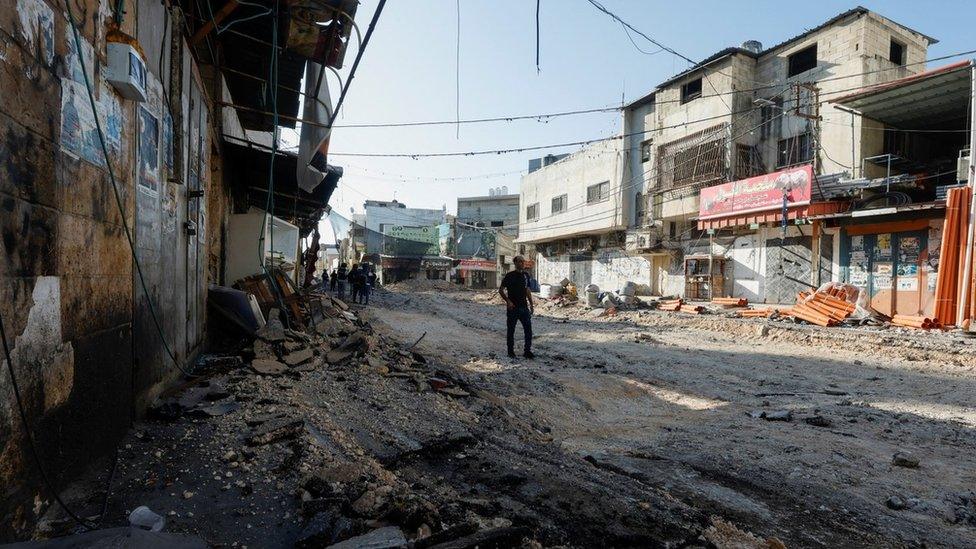
The Israeli military says its bulldozers dug up streets to remove explosive devices planted by militants
Jenin has become a stronghold of a new generation of Palestinian militants who have become deeply frustrated by the West Bank-based Palestinian Authority's aging leadership and the restrictions of the Israeli occupation.
The city has seen repeated Israeli military raids in the past year as local Palestinians have carried out deadly attacks on Israelis. Other Palestinian attackers have hidden there.
Palestinian Prime Minister Mohammed Shtayyeh rejected statements from foreign governments saying that Israel had the right to defend itself.
"Israel is internationally recognised as the occupying power over our land and people," he tweeted. "[It] should be condemned for its use of force to destroy the camp's infrastructure, facilities, and homes, and to kill, arrest, and displace innocent people."
"It is the Palestinian people that have the right to self-defence. There is no such right for an occupying power," he added.
- Published4 July 2023
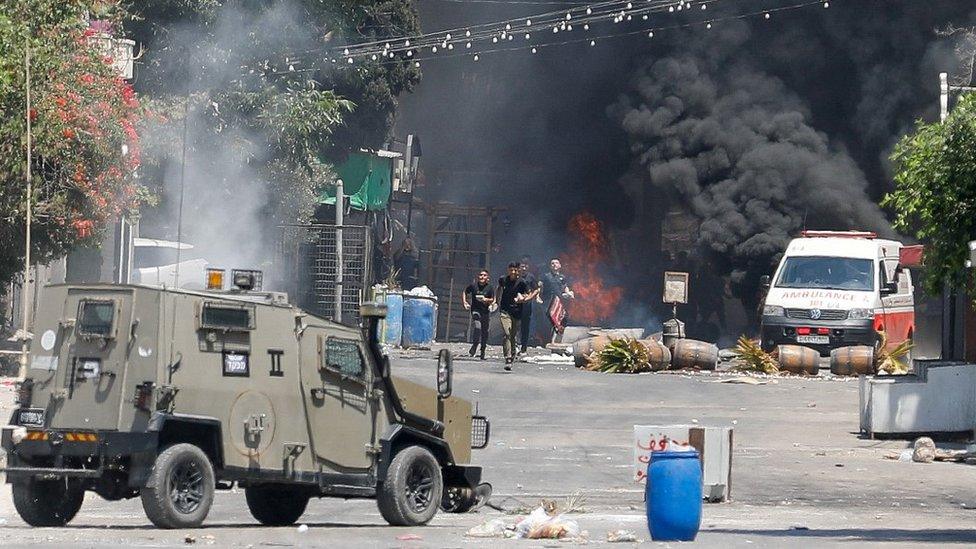
- Published4 July 2023
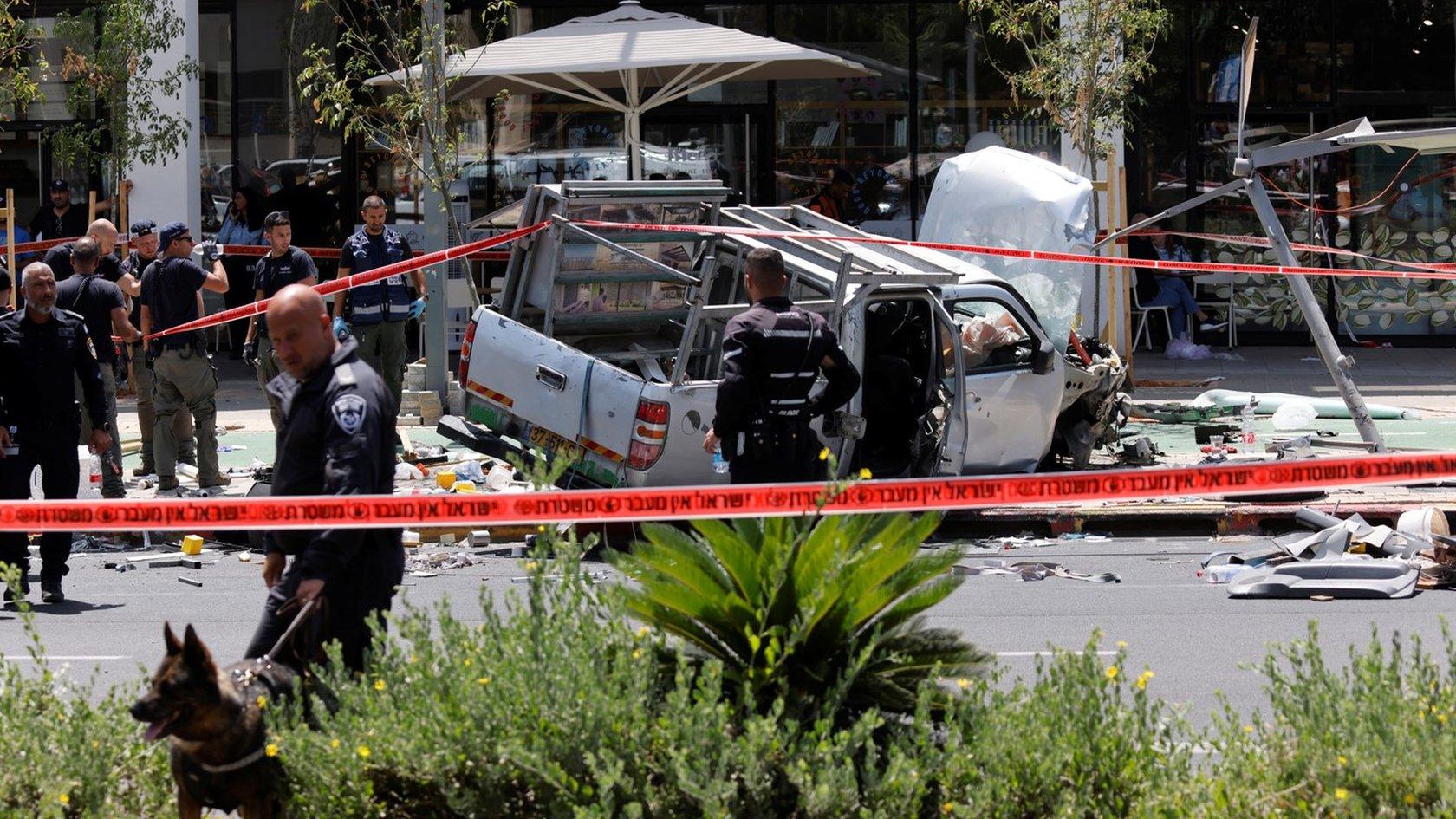
- Published3 July 2023
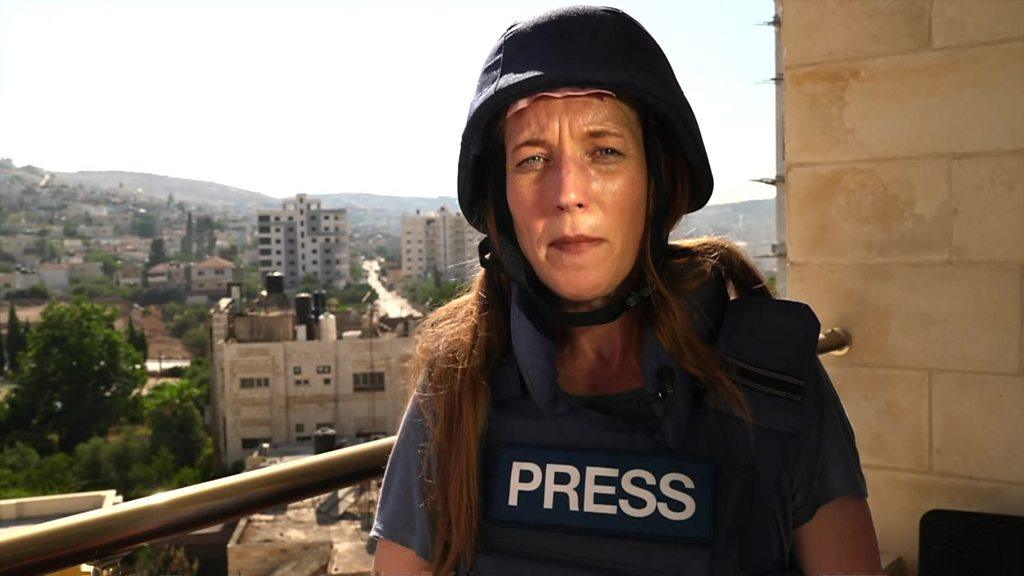
- Published22 June 2023
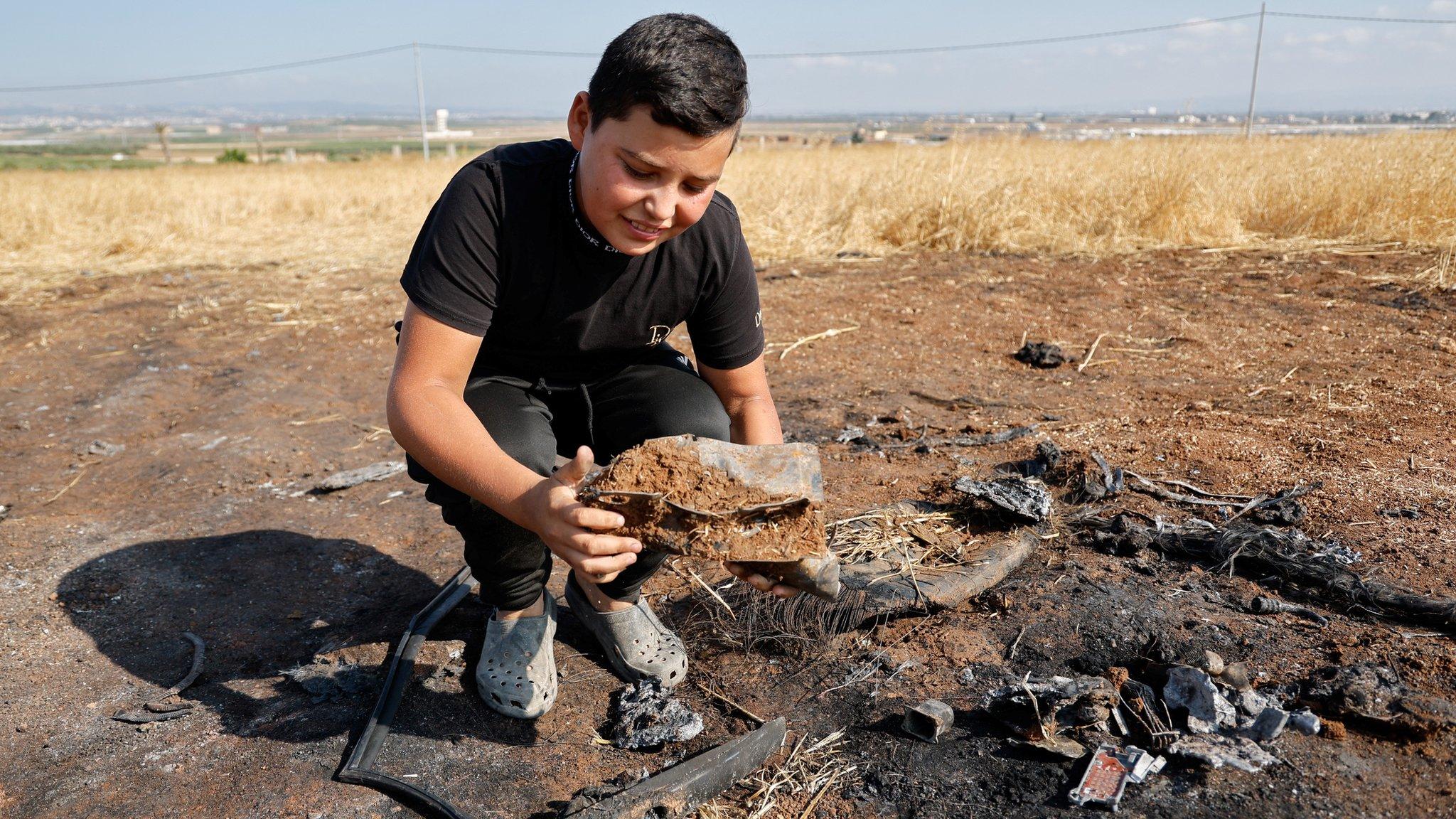
- Published21 June 2023
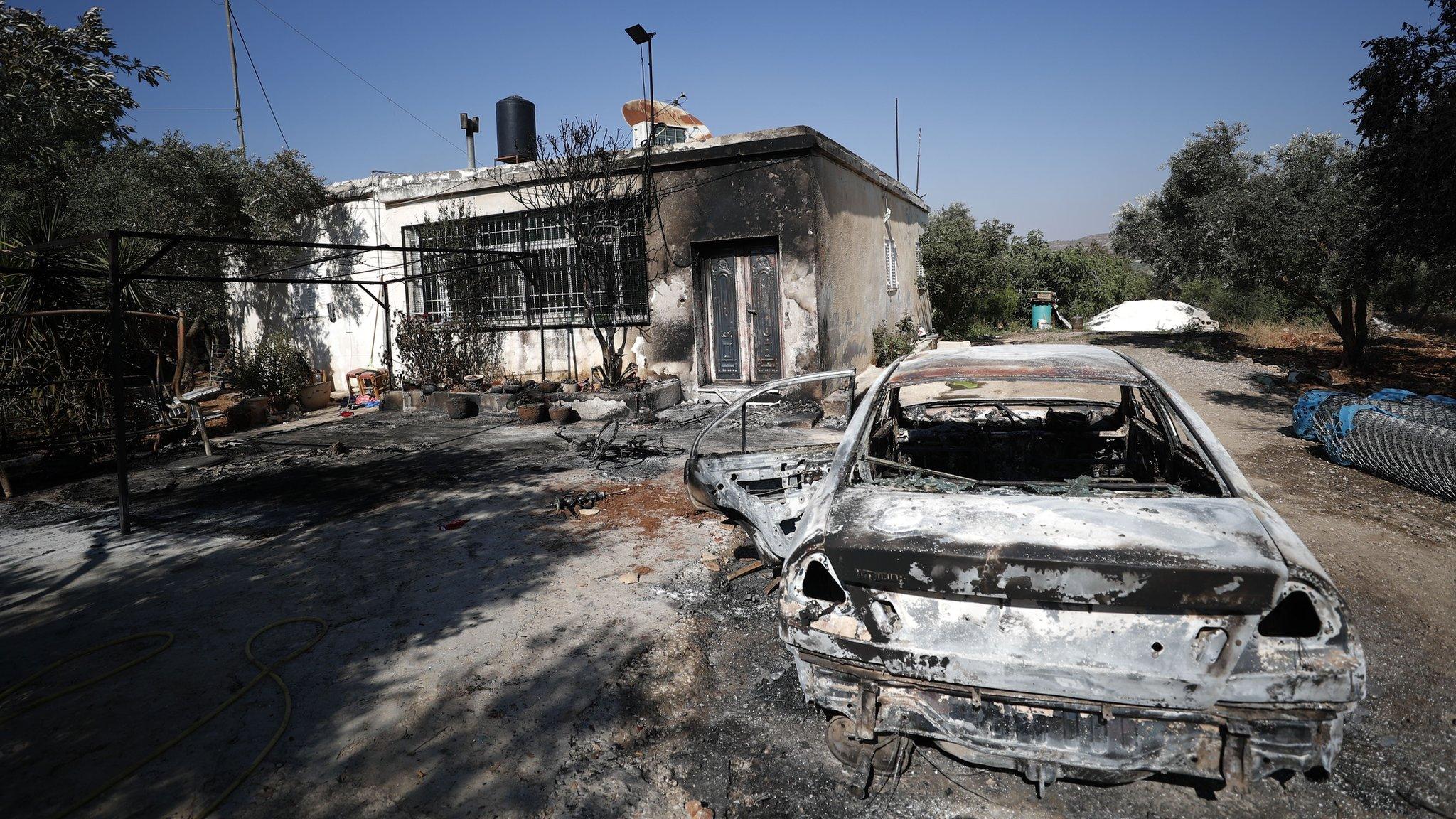
- Published21 June 2023
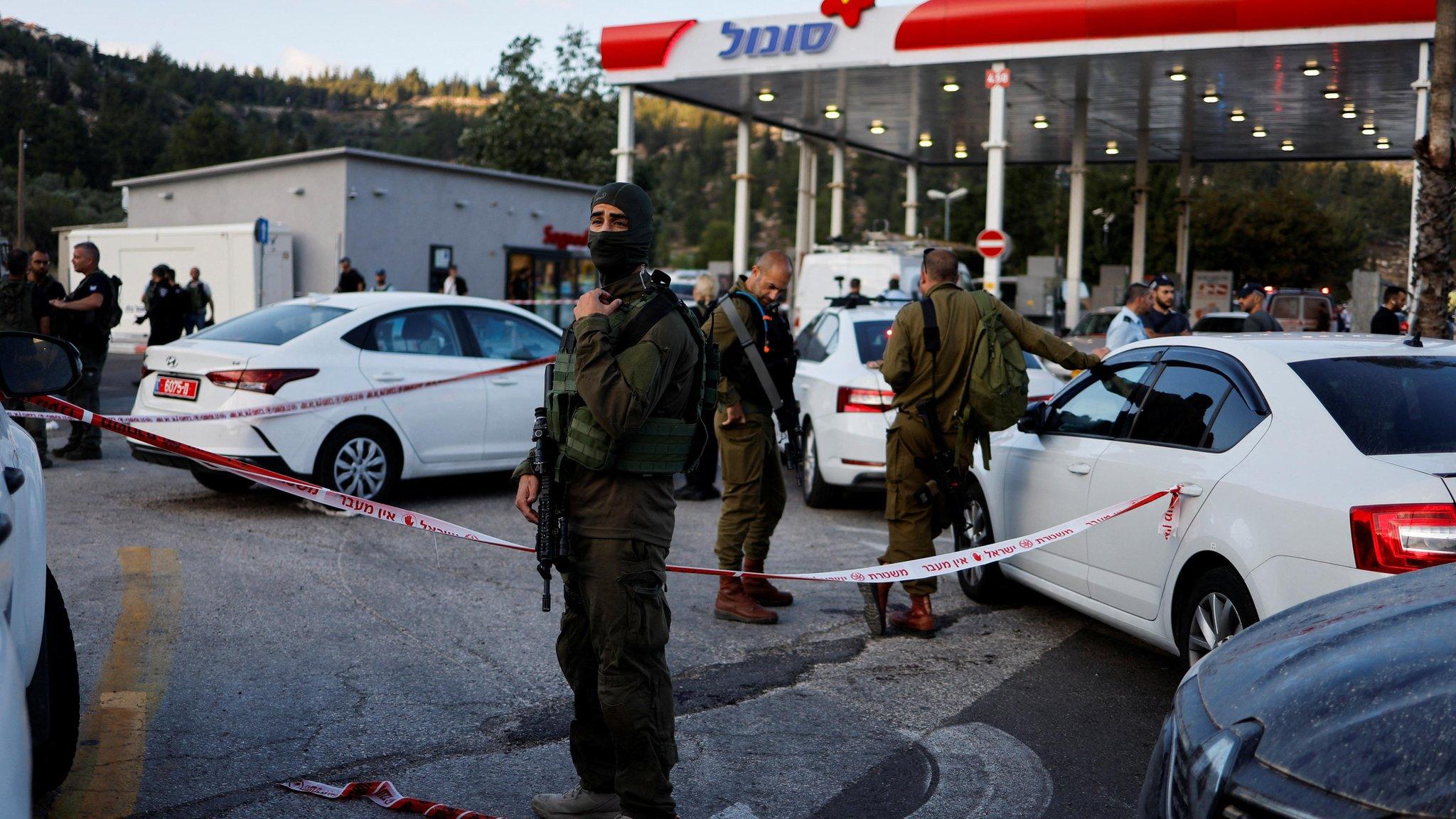
- Published20 June 2023
